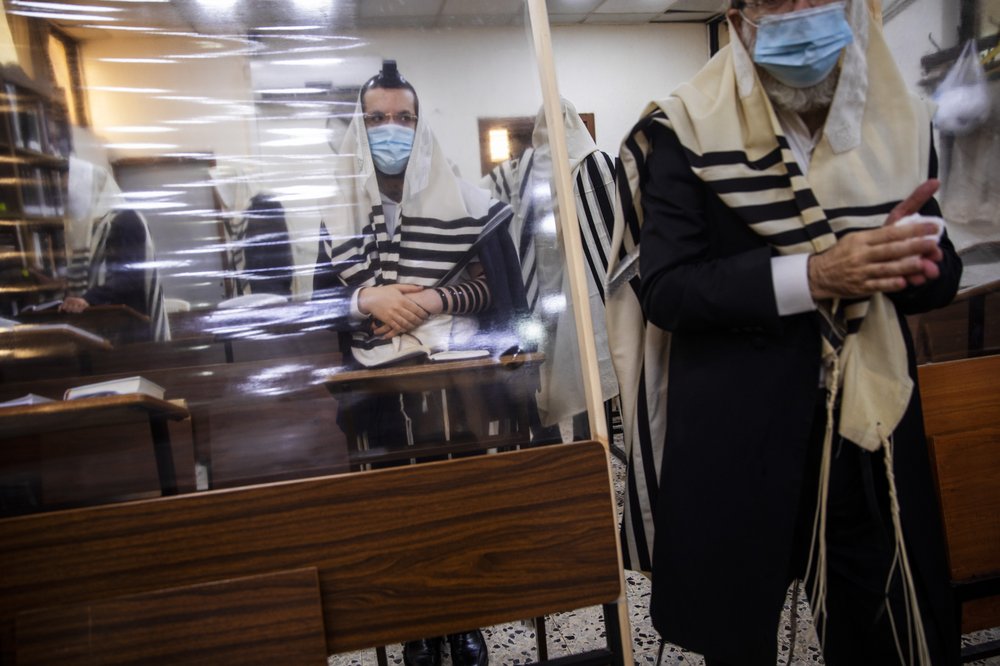Israel went back into a full lockdown on Friday to try to contain a coronavirus outbreak that has steadily worsened for months as its government has been plagued by indecision and infighting.
The three-week lockdown, which began at 2 p.m. (1100 GMT), will require the closure of many businesses and set strict limits on movement and public gatherings. The closures coincide with the Jewish High Holidays, when people typically visit their families and gather for large prayer services.
In an address late Thursday, Prime Minister Benjamin Netanyahu warned that even stricter measures may be needed to prevent hospitals from being overwhelmed. There are currently more than 46,000 active cases, with at least 577 hospitalized in serious condition.
“It could be that we will have no choice but to make the directives more stringent,” Netanyahu said. “I will not impose a lockdown on the citizens of Israel for no reason, and I will not hesitate to add further restrictions if it is necessary.”
Under the new lockdown, nearly all businesses open to the public will be closed. People must remain within 1 kilometer (0.6 miles) of home, but there are several exceptions, including shopping for food or medicine, going to work in a business that’s closed to the public, attending protests and even seeking essential pet care.
Israel has reported a total of more than 175,000 cases since the outbreak began, including at least 1,169 deaths. It is now reporting around 5,000 new cases a day, one of the highest per capita infection rates in the world.
Israel was among the first countries to impose sweeping lockdowns this spring, sealing its borders, forcing most businesses to close and largely confining people to their homes. That succeeded in bringing the number of new cases down to only a few dozen per day in May.
But then the economy abruptly reopened, and a new government was sworn in that was paralyzed by infighting. In recent months authorities have announced various restrictions only to see them ignored or reversed even as new cases soared to record levels.
The occupied West Bank has followed a similar trajectory, with a spring lockdown largely containing its outbreak followed by a rise of cases that forced the Palestinian Authority to impose a 10-day lockdown in July. The PA has reported more than 30,000 cases in the West Bank and around 240 deaths.
The Gaza Strip, which has been under an Israeli-Egyptian blockade since the Islamic militant group Hamas seized power from rival Palestinian forces in 2007, was initially insulated from the pandemic. But authorities detected community spread last month, and there are now more than 1,700 active cases in the impoverished territory of 2 million, straining its already fragile health system. At least 16 people have died.
In Israel, the government has come under withering criticism for its response to the virus and the economic crisis triggered by the earlier lockdown. Netanyahu, who is also on trial for corruption, has been the target of weekly protests outside his official residence. Israel’s insular ultra-Orthodox community, which has a high rate of infection, has also been up in arms about the restrictions, especially those targeting religious gatherings.
In Tel Aviv, hundreds of people protested the renewed lockdown on Thursday, including doctors and scientists who said it would be ineffective.
Dr. Amir Shahar, head of an emergency department in the city of Netanya and one of the organizers of the demonstration, said the lockdown is “disastrous” and would do “more harm than good.”
(AP)











